Artist Whose Radical Works Disrupted Georgian Society Featured in London Exhibition
- LONDON, United Kingdom
- /
- September 21, 2017
Curated by Dr Jacqueline Riding, Basic Instincts at the Foundling Museum in London (Sept. 29, 2017 to January 7, 2018) explores Georgian attitudes to love, desire and female respectability through the radical paintings of Joseph Highmore.
A highly successful artist and Governor of London’s Foundling Hospital, Joseph Highmore (1692-1780) is best known as a portrait painter of the Georgian middle class. However, during the 1740s his art radically shifted, reflecting his engagement with the work of the new Foundling Hospital and its mission to support desperate and abused women. Highmore’s involvement with the Hospital sparked engagement with issues around women’s vulnerability to sexual assault and society’s unwillingness to support them, culminating in a work of exceptional power, The Angel of Mercy.
Basic Instincts is the first major Highmore exhibition for 50 years and explores this decade of disruptive social commentary in his art. Amongst the works on display are four paintings from a series of twelve, inspired by Samuel Richardson’s international bestseller, Pamela, or Virtue Rewarded, explicitly making reference to the abuse and sexual violence at the core of the novel. On public display in the UK for the first time as part of Basic Instincts is a remarkable painting that still retains the power to shock. The Angel of Mercy (c.1746) depicts a desperate mother in the act of killing her baby, with the distant Foundling Hospital presented as the alternative. Set among Highmore’s tender portraits of mothers and children, family and friends, this show uniquely demonstrates the artist’s depth and variety.
The Foundling Museum tells the story of the Foundling Hospital, the UK's first children's charity and first public art gallery.
The moving story of the Foundling Hospital (which continues today as the children's charity Coram) and the abandoned children who grew up there is revealed through the artworks, objects and archival documents on display in the Museum. The Foundling Hospital Collection, owned by Coram, is complemented by the Museum’s Collection, which includes the Gerald Coke Handel Collection.
Artists who donated work to the Foundling Hospital include William Hogarth, Thomas Gainsborough, Joshua Reynolds and John Michael Rysbrack. Paintings, sculpture, furniture and ceramics are displayed in beautiful eighteenth-century interiors, reconstructed from the original Hospital building.

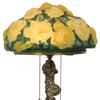
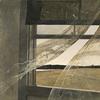


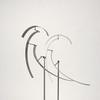

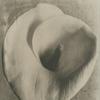
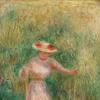


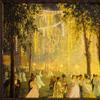
![Offering a Truce [Bested], 1895, is estimated to sell for between $1,300,000 and $1,800,000 on March 22, 2014, for The Russell: An Exhibition and Sale to Benefit the C.M. Russell Museum. Offering a Truce [Bested], 1895, is estimated to sell for between $1,300,000 and $1,800,000 on March 22, 2014, for The Russell: An Exhibition and Sale to Benefit the C.M. Russell Museum.](/images/c/a8/20/Dec10_Offering_a_Truce__Bested_300dpi100x100_c.jpg)


